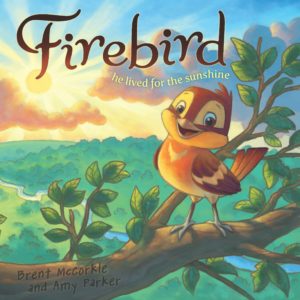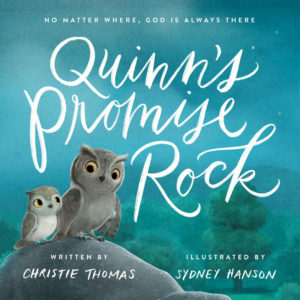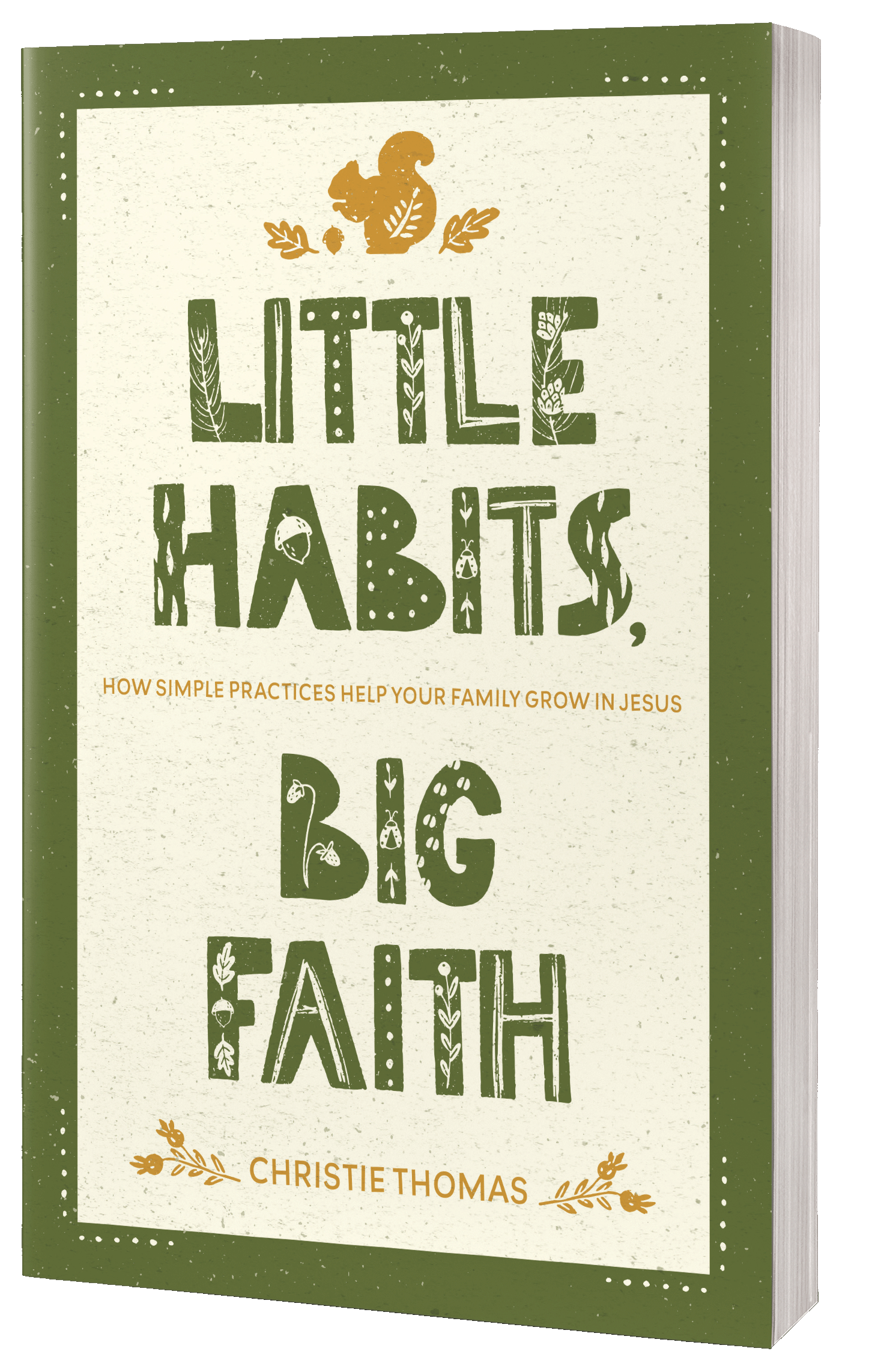Help your child with weather anxiety move past his fears using this technique.
My son and I were picking up party decorations when the lights flickered and thunder cracked overhead. As the checkout clerk swiped our packs of balloons and streamers, she said, “I heard there’s a tornado warning.”
His little hand clutched my arm. I glanced down to see a quivering lip and huge grey eyes.
Being in a tornado is one of his worst fears, and this woman had just flipped the “on” switch on his panic. I paid for our order while he peppered me with questions.
“What if we don’t make it home?”
“What if we get stuck here?”
“What if our house flies away?”

I wasn’t sure how to answer his questions, so we stood in front of the doors, watching the wind carry garbage across the parking lot and rain pound into our vehicle.
WHY CHILDREN GET WEATHER ANXIETY
Severe weather is essentially unavoidable in most parts of the world. From monsoons and hurricanes to tornadoes, sandstorms and ice storms, most children will experience severe weather at some point. And while earthquakes, fires, and volcanic eruptions are less common, they still cause significant anxiety in some children. Violent weather is unpredictable and wild, and can cause huge amounts of damage. Even many adults have fears about severe weather.
Even something as simple as a summer thunderstorm can have children crying under the covers because of the loud noises and unpredictable lightning flashes.
Fear triggers a flight / fight / freeze response inside of us. On one hand, this is good because it helps us take action in dangerous situations. But anxiety occurs when we begin to fear things that haven’t happened yet.
Weather anxiety, like all anxiety, is rooted in the fear of something that hasn’t yet happened, things that are actually very unlikely to happen.
WHAT NOT TO SAY WHEN WEATHER ANXIETY STRIKES
What can we tell our kids when they become paralyzed by anxiety about the weather? The truth is that tornadoes, hurricanes, sandstorms, and monsoons happen worldwide. People do lose homes, get injured, and even die.
One of the worst things you can say to an anxious child is a pat answer, like “everything’s going to be ok”.
Their brain is going through all the ways it might NOT be ok, and a lot of those ways might be realistic. My son’s fear about our house flying away might be fairly unrealistic, but it was possible we could be stuck in the storm for a while, or not make it home if a tornado truly did hit.

Pat answers like “everything’s going to be ok” can be false assurances, because there’s no way we can control the weather for our child.
One night, much like the night with my son, my teenage sister and two of her friends died in a car accident on a rain-slick road. I know that I can’t tell my kids that “everything’s going to be ok”, because sometimes it’s not.
>> Related reading: When someone you love dies
DO THIS INSTEAD
One of the best things you can do as a parent is the cognitive therapy technique of replacing anxious thoughts with helpful ones. We need to help our children confront the anxiety by changing their mental narrative from “what if” to something else. (reference)
The first step is to name the fear. A local school counselor calls this “Name it and tame it” because putting words to our fears is the first step in forcing their claws out of our brains. But after we’ve named the fear, what’s next?
We need to replace the narrative of “what ifs” running through their minds with a new narrative.

There must be a different internal narrative we can teach our children, one that is realistic but still brings peace.
For that, I turned to the Bible. (If you’re not a Bible person, I totally get it. But hang on with me here because you might still find some nuggets of wisdom! I’ll share another way to present this to your child near the end.)
IN THE MIDST OF A STORM, WHAT TRUTHS CAN OUR CHILDREN HOLD ONTO?
Jesus’ closest friends encountered several enormous storms too, and in the midst of them, their leader was always there. Whether sleeping in their boat, calming them with his words, standing on the waves, or literally calming the storm, Jesus was right there with them.
Later, when these same disciples were writing their stories and letters, they never said “everything’s going to be ok”, but they did say things like:
-
- “We know that in all things God works for the good of those who love him, who have been called according to his purpose.” (Romans 8:28)
- and “Consider it pure joy whenever you face trials of many kinds, because you know that the testing of your faith develops perseverance.” (James 1:2, 3)
The disciples knew, just as I have discovered, that life isn’t always easy. This goes way beyond weather anxiety. In our lives, there are many trials, storms, and frustrations. Sometimes loved ones get cancer, sometimes they die, sometimes friends develop mental illness, or tornadoes rip apart our homes.
RELATED: Join the 10-day anxiety prayer challenge.
But the one thing that remains true in all those situations is the presence of God.
In Psalm 23:4 we read: “Even though I walk through the valley of the shadow of death, I will fear no evil, for you are with me; your rod and your staff, they comfort me.”
>> Related Reading: How to help kids deal with anxiety, through faith
HERE’S WHAT I TOLD MY SON
So that day, as we drove home under a black sky, with the wind pelting our minivan, I reminded my son of several truths.
-
- No matter what, God is with him. I shared this phrase with him: “When you’re lost or scared, God is there.” (from Quinn’s Promise Rock)
- That same God has given us incredible gifts, which can help us if a tornado hits or other hard things happen.
- We have a community of friends and family that could help us if our house was destroyed by a tornado.
- We have insurance to help if we need to rebuild.
- We have people that will pray for us, bring us meals, and share their homes.
All these have been provided by a God who we can trust. And we can know that in the storms of life, God is still good, God is still with us, and God cares for us through the people he has put in our lives.
Another way to help your child replace the fear-thoughts with healthy thoughts is to help them put together an on-the-spot list of things they are grateful for. Refocusing his mind on the good helps to make the bad seem a lot less overwhelming. This is essentially what I did with the list above. Anyone at any stage of life can make a list of things they’re grateful for!
TWO STORIES TO HELP YOUR CHILD WITH ANXIETY
 As we drove through the pounding rain and wild winds, I also reminded my boy of one of my favourite children’s books, called Firebird: he lived for the sunshine by Brent McCorkle and Amy Parker.
As we drove through the pounding rain and wild winds, I also reminded my boy of one of my favourite children’s books, called Firebird: he lived for the sunshine by Brent McCorkle and Amy Parker.
Stories can be incredibly useful ways to teach our children deep truths in a way they remember, and at this moment, I was glad that my 4-year-old had insisted we take it out from the library four times. ?
In this story, little Firebird hates it when storms come, because he loves the sunshine more than anything. He wonders why God would let the storm take the sun away. His wise mama just keeps reminding him that there are answers above the clouds. One stormy day, he braves the terrifying thunder and lightning to find out why God let the storm take the sun away. To his surprise, he breaks out of the storm and finds that the sun has been there the whole time.
Firebird learns that the sunshine is always there, just like God’s unconditional love. And it helps him learn not just to tolerate the rain, but rejoice in it. This story works on multiple levels and its deepest level has nothing to do with physical storms. But it also reminds our weather-scared kids that there’s still a God who cares, even in the middle of a storm.
 In Firebird, the constancy of God’s presence is illustrated through the metaphor of the sun. God’s presence is illustrated through the metaphor of a rock in Quinn’s Promise Rock.
In Firebird, the constancy of God’s presence is illustrated through the metaphor of the sun. God’s presence is illustrated through the metaphor of a rock in Quinn’s Promise Rock.
Quinn loves her father and can’t imagine life without him. Everywhere Quinn goes, her father goes too. But sometimes Quinn gets scared her father won’t be there. What will she do? Who will be there if she gets lost? Quinn’s father comforts her by showing her that God is like the enduring rock of a mountain, the protective rock of a cave in the midst of a windstorm, and a portable pebble he finds on the ground. He gives her a special present to show her that her heavenly Father is always there and will never leave her—no matter what.
PEACEFUL HEARTS IN THE MIDDLE OF THE STORM
We made it home that night.
We had to leave some of our shopping bags in the van as we dashed through puddles into the house, but we made it. As we pulled off our dripping coats, he looked at me and smiled. He forgot his fears, he was happy to be in his home, and he was ready to celebrate his birthday with his family.
Ready to help your child? Check out one of these two books to get you started!





0 Comments